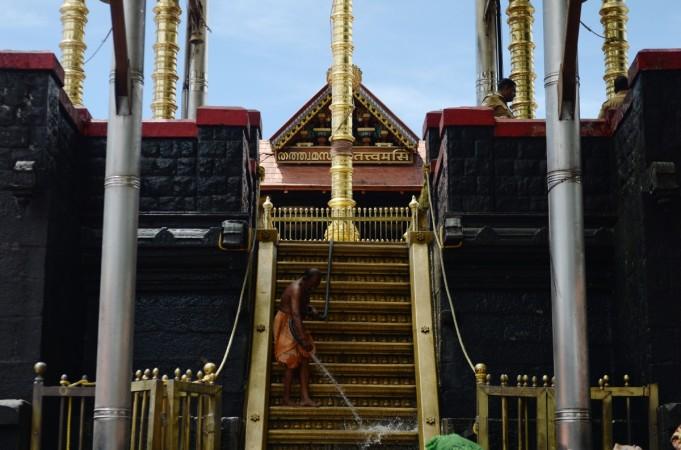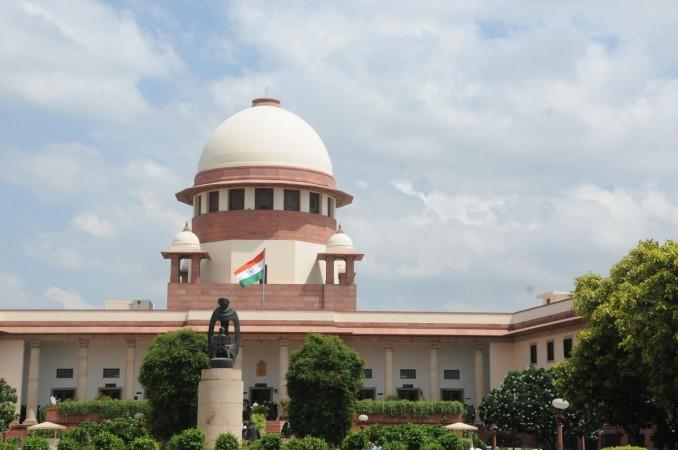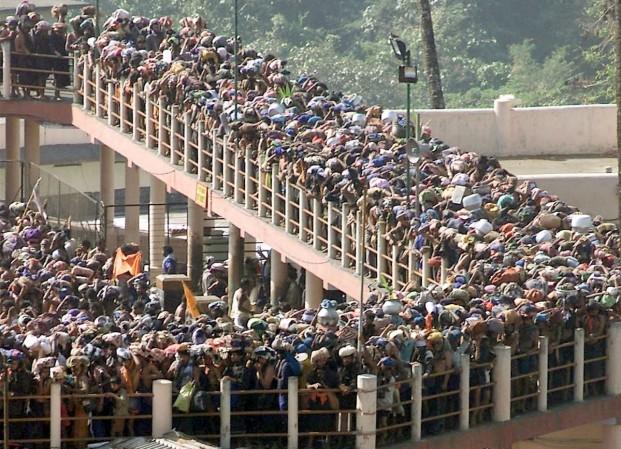Kerala Police have made elaborate security arrangements and has planned to deploy over 10,000 officers in and around Sabarimala for the Mandala Pooja festival. The deployment will be done over five phases starting from November 15. The temple will open on November 16 for the three-month-long pilgrimage season.
The Kerala police release said that 24 Superintendents of Police and Assistant Superintendents of Police, 112 Deputy SPs, 264 Inspectors, 1185 Sub-Inspectors will be posted. Also, a total of 8,402 civil police officers, including 307 women, will be on duty around the shrine complex.

Earlier this month, Kerala Chief Minister Pinarayi Vijayan said that it is not possible to make laws to circumvent the Supreme Court's order permitting entry of women of all age into the Sabarimala temple. The Supreme Court had on September 28 last year permitted the entry of women of all age groups into the Sabarimala Lord Ayyappa temple.
SC verdict on November 14
The Supreme Court on Thursday, November 14 will pronounce the judgements on the review petitions filed on the issue of entry of women of all age groups into the Sabarimala temple. In the case of Sabarimala, a five-judge Constitution bench headed by Chief Justice Ranjan Gogoi in February concluded the arguments and reserved the judgement on the batch of petitions seeking review of the apex court verdict in 2018, which allowed the entry of women of all ages into the Sabarimala temple.

It is one of the most important judgements, which is expected to be pronounced before the Chief Justice's term ends this month. The bench had heard submissions on behalf of all parties, including the Kerala government, Travancore Devaswom Board (TDB), Nair Service Society and others. The court had then said it would pronounce its order on whether to review the judgment or not.
As many as 64 petitions, which include review pleas and transfer pleas, have been filed in the apex court challenging its decision on the entry of women into the Sabarimala temple. On the last day of the hearing, in what appeared to unprecedented, the Travancore Devaswom Board (TDB), which handles the management of Sabarimala temple in Kerala, reversed its stand in the top court by expressing its support to the 2018 court verdict, which had allowed women of all age groups to enter the shrine. The board submitted in the court that discrimination on the grounds of biological attributes was not correct.
The Sabrimala ruling
On September 28, 2018, a Constitution bench, headed by the then CJI Dipak Misra, gave a 4:1 verdict to allow entry of women of all ages into the temple, claiming the ban led to gender discrimination. As a result of the verdict, massive protests broke out in Kerala, which led to a political slugfest between the ruling CPI-M and the BJP. The parties opposed to the judgement filed review petitions which were heard in February by the Justice Gogoi-headed Constitution bench. The bench heard all parties, including the Kerala government, Travancore Devaswom Board (TDB), Nair Service Society and others.
The court had said that it would pronounce its order on whether to review the judgment or not. It has already been six months since then. On the last day of the hearing, in what appeared to be unprecedented, the Travancore Devaswom Board (TDB) which handles the management of the Sabarimala temple, reversed its stand in the top court by expressing its support to the 2018 verdict. The board submitted in the court that discrimination on the grounds of biological attributes was not correct.

The Kerala government had expressed its support for the Supreme Court ruling in 2018 and urged the top court to not consider the petitions seeking the review of the judgment. The Nair Service Society had moved the opposing the court's verdict in 2018, and the Kerala government, TDB and the two women who had entered the shrine had expressed their opposition these review petitions.
Senior advocate K. Parasaran, counsel for the Nair Service Society, had argued before a five-judge bench and urged the court to set aside its earlier verdict. Senior advocate Rakesh Dwivedi, counsel for TDB, submitted before the court that Article 25 (1) equally entitles all persons to practice religion.
"Women cannot be barred on biological attributes. In the Constitution, equality is the dominant theme," said Dwivedi while voicing out board's opinion that people should accept the top court verdict. The board had earlier consistently opposed the entry of women into the Lord Ayyapa shrine at Sabarimala, and its u-turn on the matter has been brought on record before the court. In light of these circumstances, it will be interesting to see the outcome of these arguments in the Supreme Court judgment.
The TDB had also opposed a PIL by the Indian Young Lawyers Association. The board said the celibate character of Lord Ayyappa at Sabarimala temple was a unique religious feature, and it is protected under the Constitution.

















